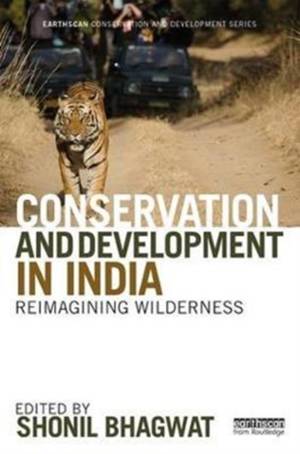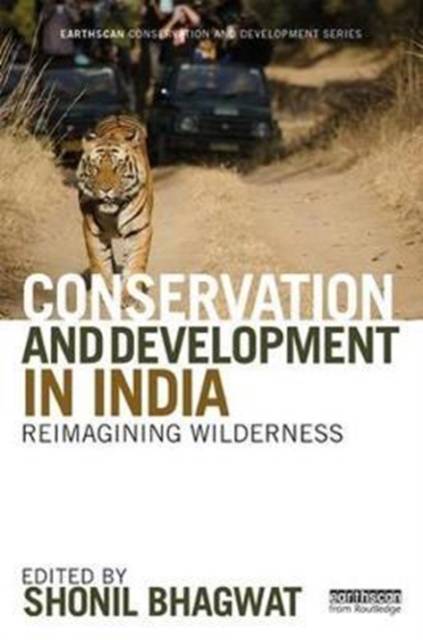
- Afhalen na 1 uur in een winkel met voorraad
- Gratis thuislevering in België vanaf € 30
- Ruim aanbod met 7 miljoen producten
- Afhalen na 1 uur in een winkel met voorraad
- Gratis thuislevering in België vanaf € 30
- Ruim aanbod met 7 miljoen producten
Conservation and Development in India
Reimagining Wilderness
Omschrijving
Despite decades of efforts to integrate conservation and development, India is torn between two very different worldviews of peoples' place in the country's natural environment. This book takes a critical look at nature conservation and poverty alleviation in India. It opens up discussion of the conservation-development nexus in a country that stands at a major crossroads, where forces of neoliberalism, globalisation and urbanisation are driving the future of India's environment.
As the book shows, conservation in India is increasingly concerned with creating 'theme parks' - inviolate, albeit isolated, spaces for wild nature, whereas development is concerned with fast-tracking the construction of built infrastructure while also rolling out nationwide welfare programmes - promising food, clothing and shelter for the poorest of the poor living in rural India. Conservation and development therefore have very different motivations and attempts to find a common ground have been fraught with challenges. This has been particularly so on the fringes of wildlife parks, where the rural poor come in frequent contact with wild animals to the detriment of both people and wildlife.
Chapters are written by leading scholars on India to provide a vision of the future of Indian nature conservation. Whilst focused on India, the book will also be of interest to scholars and researchers of conservation and development more globally. As a 'rising power', the world's eyes are set on India's development trajectory and there is unprecedented interest in the course of development that the world's largest democracy takes in the decades to come.
Specificaties
Betrokkenen
- Uitgeverij:
Inhoud
- Aantal bladzijden:
- 208
- Taal:
- Engels
- Reeks:
Eigenschappen
- Productcode (EAN):
- 9781138922334
- Verschijningsdatum:
- 23/01/2018
- Uitvoering:
- Hardcover
- Formaat:
- Genaaid
- Afmetingen:
- 156 mm x 233 mm
- Gewicht:
- 452 g

Alleen bij Standaard Boekhandel
Beoordelingen
We publiceren alleen reviews die voldoen aan de voorwaarden voor reviews. Bekijk onze voorwaarden voor reviews.










